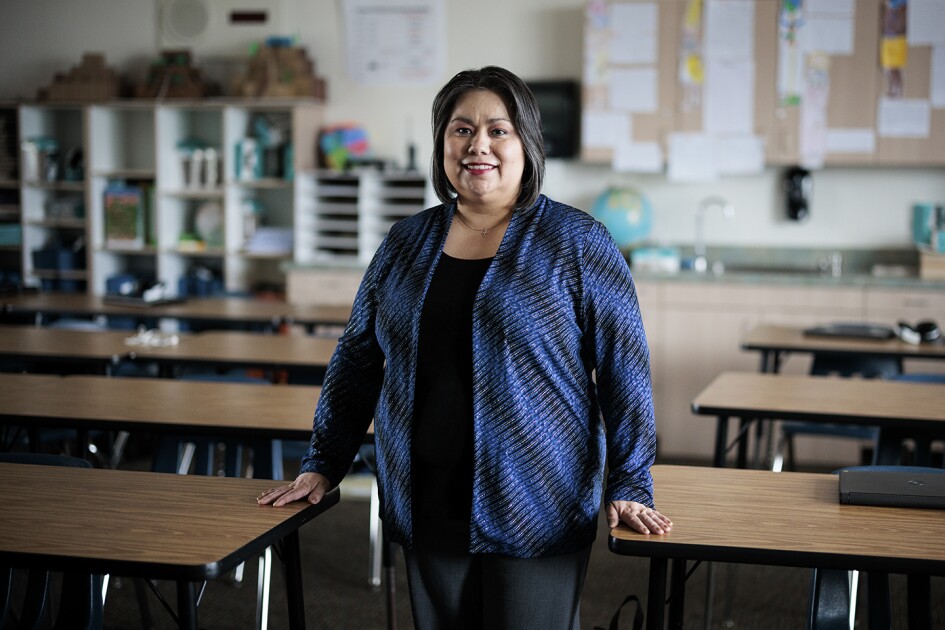Though Texas has given birth to some of the nation’s most outstanding charter schools, it needs to overhaul its policies so that those on the bottom rung don’t drag down the state’s entire charter sector, concludes a report from a national think tank that is friendly to the concept of charter schools.
Ten years after the state first allowed the independently run public schools, it needs to move aggressively against low performers and clear away obstacles to expanding the very best, says a report slated for release this week by the Progressive Policy Institute, a Washington-based organization affiliated with the centrist Democratic Leadership Council. The institute has sponsored a series of reports on charter schools in key states, the latest on Ohio. (“Charter Studies Offer Caution on Achievement,” Feb. 9, 2005.)
“Texas Roundup: Charter Schooling in the Lone Star State” is available online from the Progressive Policy Institute.
“By providing more freedom at the top of the charter scale and more oversight at the bottom, Texas can enhance the contribution its charter sector is making,” says the report, which was written for the institute by Nelson Smith, a researcher who recently became the president of the Charter School Leadership Council, a Washington-based advocacy group.
Among the changes the report recommends are making it easier to shutter failing schools; reducing the paperwork burden on proven successes; granting exemptions to the state’s charter cap for high performers; and slashing the number of charter schools that are outside the state’s regular school accountability system.
Pushed by critics of Texas charter schools’ spotty academic record, as well as high-profile school failures, the Texas Education Agency and state Commissioner of Education Shirley Neeley are already moving forward with several regulatory changes aimed at addressing some of the shortcomings highlighted in the report. (“New Texas Policy Cracks Down on Charters,” Jan. 26, 2005.)
“Happily, it’s a moving target, because the commissioner and the TEA have been moving in the right direction,” Mr. Smith said last week. “So I hope that they will see my report as supporting the good direction they have been moving in and not necessarily as criticism.”
Pendulum Swing
With more than 80,000 students on more than 300 campuses, Texas charter schools trail only those of California in enrollment.
And the state is home to some exceptional high fliers, including the fast-growing chain of schools using the Knowledge Is Power Program, or KIPP. Started as a single charter school in Houston and now based in San Francisco, the KIPP network of 38 schools in 15 states and the District of Columbia has been widely praised for attaining powerful academic results with children from disadvantaged families.
Still, the state’s 313 charter campuses “remain a speck in the vast Texas education landscape,” the report says.

To change that, Mr. Smith calls for doing more to spur the replication of successful models, partly by rewarding them with greater state funding. Charter operators whose schools rank in the top two categories under the state’s school rating system also should be allowed to exceed the state’s cap of 215 state-authorized charter schools, he recommends.
Encouraging universities to authorize more charter schools is another needed step, he says, as is streamlining regulations imposed in response to a rash of scandals and school closings in the late 1990s. The charter law, first adopted in 1995 and then revised substantially in 1997, was revised again in 2001 to require compliance with a range of new requirements.
“Although the original Texas statute arguably lacked sufficient teeth to prevent scoundrels from taking advantage of charter school autonomy, the pendulum has now swung too far in the opposite direction,” the report says.
Alternative Charters
On the whole, Texas charter schools have lagged well behind their district-run counterparts on state tests, the report notes. But studies have also found that students in charter schools are making gains at a faster rate, Mr. Smith reports.
Yet getting a complete picture of charter school performance has been hindered, the report argues, in part because the state has let too many charters opt into an alternative accountability system that lets them pass muster even though they achieve far lower success rates on state exams.
Nearly 120 of the state’s charter sites are classified as alternative, a figure that Mr. Smith said reflects a lack of recognition of the successes many charter schools have had with highly disadvantaged students.
“A lot of schools have become too comfortable with being thought of as alternative, when in fact they could compete perfectly well,” he said.
Patsy O’Neill, the executive director of the Resource Center for Charter Schools in San Antonio, said the state is reviewing its criteria for being designated an alternative school. She said that review is part of a series of efforts under way to address Mr. Smith’s observations, which she called valid.
A spokesman for the Texas Federation of Teachers, which has been a critic of charter schooling in the state, said last week that the union remains concerned that too many charter schools are not being held to the same standards of academic and fiscal accountability as regular public schools. For that reason, he said, the American Federation of Teachers affiliate is opposed to lifting the charter school cap.
kIPP co-founder Mike Feinberg, who is based in Houston, said the report underscores the need to support the state’s high-quality charter schools and weed out its poor ones.
“After a decade of charters in Texas, the experiment is over, and the experiment has some really great results and some really bad results,” he said.







